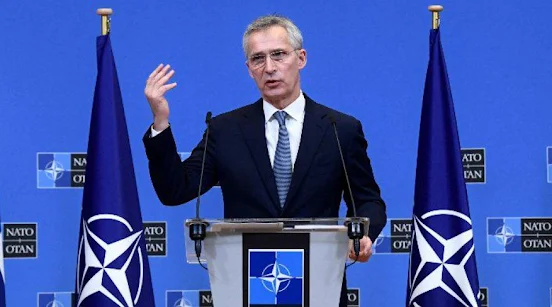 |
| NATO Secretary General Jens Stoltenberg |
International Military - NATO has no intention of giving Russia any security guarantees regarding the deployment of nuclear weapons in the territories of its two newest members, Finland and Sweden. The statement was made by the Deputy Secretary General of NATO Camille Grand.
“Every country is free in the nuclear field to deploy or not to use such weapons. We are not talking about setting some principle restrictions on possible alliance actions," the NATO official told Swiss broadcaster RTS in an interview published on Tuesday (7/6/2022).
Read Also: Arms Exports To Ukraine, Poland Makes Big Profits Worth USD630 million
Each NATO member state decides on this issue sovereignly. And now there is no such question. But I don't think that under the current situation, Russia needs to give any guarantees regarding our military posture in the region," he said.
Once-neutral countries Finland and Sweden have rushed to join NATO amid the ongoing conflict between Russia and Ukraine.
Russia attacked its neighbors in late February, following Ukraine's failure to implement the terms of the Minsk agreement, which it first signed in 2014, and Moscow's eventual recognition of the Donbass republics of Donetsk and Lugansk.
Read Also: Ukraine Furious At Israel For Refusing To Sell Iron Dome Missiles for Against Russia
The protocol brokered by Germany and France was designed to give breakaway regions special status within the Ukrainian state. The Kremlin has since demanded that Ukraine formally declare itself a neutral country that will never join NATO.
Grand said Ukraine's potential accession to the bloc was not currently on the agenda. "The ongoing conflict must be resolved before Kiev will be able to decide for itself how it wants to position itself within the European security architecture," he said.
Finland and Sweden, while de jure neutral, have maintained close ties and military cooperation with the US-led bloc for decades. “These are two very close partners who come with significant military capabilities. They also brought knowledge about the Baltic Sea and Nordic Sea regions,” said Grand.
However, the potential accession of the two countries to the bloc is deadlocked as Turkey, a major power in NATO, vehemently opposes their offer of membership. Ankara accuses the two countries of being "guest houses for terrorist organizations" for hosting members of Kurdish groups banned in Turkey.
